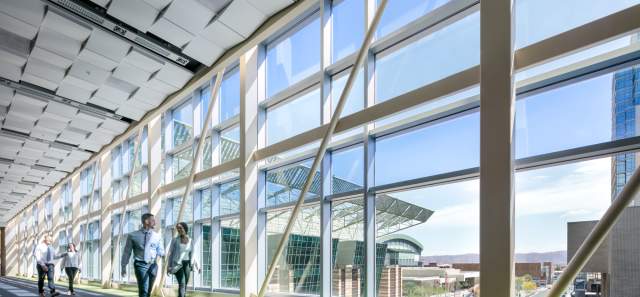Rancho Ochoa, a rodeo arena in southwest Phoenix, treats local fans to traditional charreada.
By Nora Burba Trulsson
On a cloudless Saturday afternoon, a young charro, dressed in a traditional felt sombrero, formfitting white shirt, red tie and leather chaps, spurs his horse into a full gallop down a wide chute leading into a circular arena. Just as the horse seems as though it’s going to gallop straight into the bleachers, the charro pulls back the reins and directs his horse into a perfectly executed running slide, then shows off his mount’s spinning and backing maneuvers.
A fine layer of arena dust coats the spectators, but nobody seems to mind. They’re too busy watching the ballet-like movements of the cala de caballo, or reining drill, one of nine events that are part of this charreada, or Mexican rodeo.
The location? Not Mexico. Rather, the arena is located at Rancho Ochoa in southwest Phoenix, one of only a handful of places in Arizona where traditional charreadas take place.
The 11-acre property is owned by Jose Ochoa, who also lives on site. Born in Mexico, raised and schooled in the United States, Ochoa grew up learning the charro, or cowboy, traditions and skills, and participated in charreadas. He bought the rural property in 2001 and recently built the regulation lienzo, or keyhole-shaped arena. In 2013, he began hosting public charreadas on a monthly basis, from fall through late spring.
“This is my hobby,” says Ochoa, who runs several manufacturing companies as his primary occupation. “My grandfather and father did this in Mexico, and now my youngest son does it, too.”
Other family members also participate. Another son works the front gate, and a daughter is in charge of beer and soda sales.
Rancho Ochoa’s charreadas follow the sport’s rules and regulations developed in Mexico, and Arizona state laws concerning treatment of animals. The charreada tradition dates back to ranch work competitions between large haciendas in Mexico. After the Mexican revolution, the competitions were formalized, with rules regulating everything from details regarding the charros’ dress to time limits for accomplishing certain feats. For the most part, it’s an amateur sport, with trophies and glory instead of cash prizes. By the 1970s, the charreada began appearing in the United States.
“It’s about the animals,” says Ochoa, “and what skills the charro has to use to work with them.”
At Rancho Ochoa’s recent charreada, 36 participants—men and boys ranging in age from 10 to 60—take part in the nine traditional team events, starting with a mariachi-music-backed parade around the arena and the cala de caballo. Other events include the cola, when a mounted charro changes the direction of a wayward steer by grasping its tail and wrapping it around his leg at the ankle; and the terna en el ruedo, or team roping a steer using ropes made from maguey fibers. The pièce de résistance? The paso de la muerte, a death-defying maneuver that has the charro leaping from his own bareback horse onto the back of a running bronc, with only the mane to grasp.
While males dominate the charreada, Ochoa notes that many of his events also include an escaramuza, a series of horseback drills performed by women, also in traditional dress.
At the afternoon charreada, the last paso de la muerte participant safely lands on the running bronc, slows it and dismounts. The announcer states the scores, and the events are over. Charros and spectators head to the drink stands for a cold Tecate, and to tables set up in the grass next to the arena, where ladies sell carne asada tacos.
On the stage above the arena, a band sets up for a dance concert, which goes on long after the sun sets, drawing even more guests.
For Jose Ochoa, it’s another good Saturday at Rancho Ochoa. Everyone had a good time, and nobody was injured. So why doesn’t Ochoa participate in the charreada anymore? “I’ve broken my leg and my arm,” he says with a shrug and a smile. “I think it was time for me to stop.”
-
Rancho Ochoa is located at 6638 W. Broadway Road, Phoenix; (602) 338-0521.
-
The rodeos are open to the public and occur most months.
-
Check Rancho Ochoa's Facebook page for schedule updates. Ticket prices vary.
-
Signage and announcements at the charreadas are all in Spanish. If your high school Spanish skills are rusty, Rancho Ochoa employees are friendly and happy to fill you in on what’s going on in English, as are most spectators.
editor's picks
Things to Do This Weekend in Phoenix
April 26-28 Find out what's happening this weekend in Phoenix. You can see some live music, see…
Best Places for a Picnic in Phoenix
Year-round sunshine makes most months perfect for playing in the park. Pack your basket (or find a…
Things to Do for Easter in Phoenix
Stay tuned for next year's post! In the meantime, see what Easter events occurred this past…
Top Spots to Golf In Phoenix
Shrouded by mountains on three sides and covered by a canopy of near-perpetual blue sky, Phoenix and…
Luxury Hotels and Resorts in Phoenix
Renowned for their opulence, world-class amenities, and unparalleled hospitality, these…









